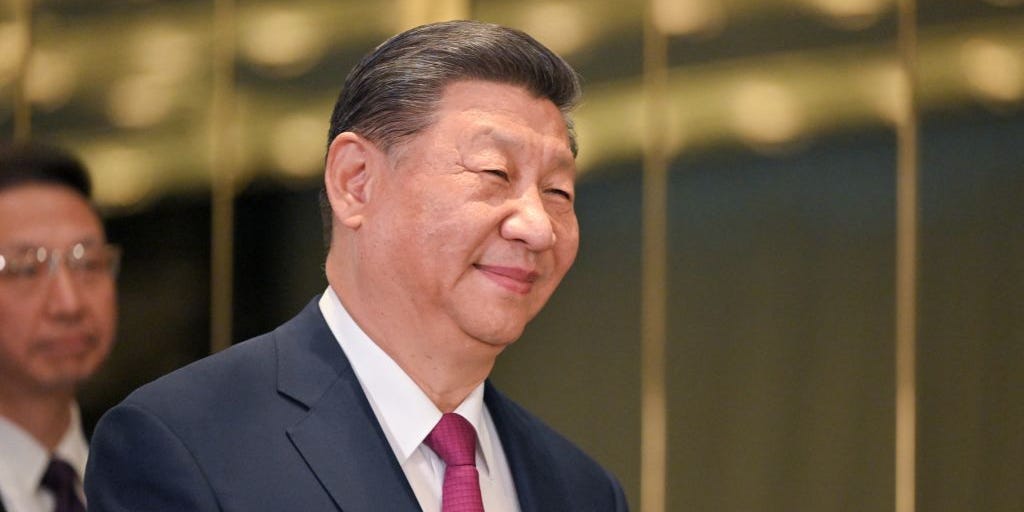A top economist has joined the growing list of China’s elite to have disappeared from public life after criticizing Xi Jinping, according to The Wall Street Journal.
Zhu Hengpeng served as deputy director of the Institute of Economics at the Chinese Academy of Social Sciences (CASS) for around a decade.
CASS is a state research think tank that reports directly to China’s cabinet. Chen Daoyin, a former associate professor at Shanghai University of Political Science and Law, described it as a “body to formulate party ideology to support the leadership.”
According to the Journal, the 55-year-old disappeared shortly after remarking on China’s sluggish economy and criticizing Xi’s leadership in a private group on WeChat.



The most ridiculous I have heard is that when I pointed out that people had to wait for years to get a car, and bread lines were common, I got told that the scarcity in communist states is by design.
SuRe yOu lIvE iN tHe CoUnTrYsIdE, bUt YoU dOn’T nEeD a CaR. JuSt WaLk oR gEt A bUgGy.
Yeah over production of goods is a problem but the ussr was built different. Hungary(where im from) has the second best land for agriculture in all of europe only after ukraine and somehow we still had food rations. Same in ukraine too. They had it even worse.
Ukraine’e famine was likely intentional (or at the very least, it was controlled in a way to only affect that one area that happened to have a burgeoning independence movement).
https://en.wikipedia.org/wiki/Holodomor
Famine during the land collectivisation period was a phenomenon that affected many different areas of the former USSR, including Ukraine but also others like Kazakhs, regions in Russia, etc. While there were several important failures in the collectivisation policy that led to famine, saying that it was purposefully man-made in a genocidal attempt against Ukrainians (as the narrative of Holodomor does) is simply a revisionist national myth designed to create hostility between the former republics of the USSR.
There is no precedent, and no continuation, of any intent of harm against the Ukrainian population in the USSR, to the point that the following president of the country was a Ukrainian native (Khruschchyov). Ukraine had the same amount of doctors and hospital beds per capita than the USSR average, similar proportion of students of higher education than other republics, around 37% of book titles and 80% of all newspapers were printed in Ukrainian language by the 70s, in 1939 only 14% of students in Ukraine studied in Russian, and Ukrainians had an average proportional national representation within the communist party, on par with the USSR average.
From all of this, it’s impossible to make the claim that there was any genocidal intent against Ukrainians in the USSR, which in fact saved the Slavic peoples from extermination by the Nazis.
Breadlines weren’t common. Breadlines never took place in the USSR between WW2 ending and Perestroika taking place, you’re being ahistorical. Food supply wasn’t secure for all the population in any nation until the green revolution, the USSR being no exception to that.
Regarding waiting for a car, the soviet economy simply didn’t prioritize car manufacturing. The planning didn’t intend for every citizen to have a car in the 70s or 80s, they didn’t intend to make so many cars, so naturally, the people who had the wealth to buy a car, had to wait in waiting lists to get one, it’s not so hard to understand. There are no waiting lists in capitalism because you can segregate 99% of the population from consuming a particular good simply by making it expensive. In socialism, when you don’t have extreme inequality, most people will have access to purchase power for the vast majority of goods you produce. This in turn means that either you manufacture literally from the start one product for every citizen, or there will be waiting lists, it’s really as simple as that.
When you can’t afford a house in capitalism until you’re 35 (if you can ever afford it) you aren’t technically in a waiting list, so even if there’s only new housing for 5% of the population every year, there will be no “waiting list” because simply the prices will go up until only 5% can afford it. In socialism, the same 5% of housing can be afforded by 50% of people, so the way to allocate the goods is a waiting list instead of priority through wealth accumulation.
Do you really fail to understand this?
Access to transport is as important as housing, man. Do you really fail to understand this?